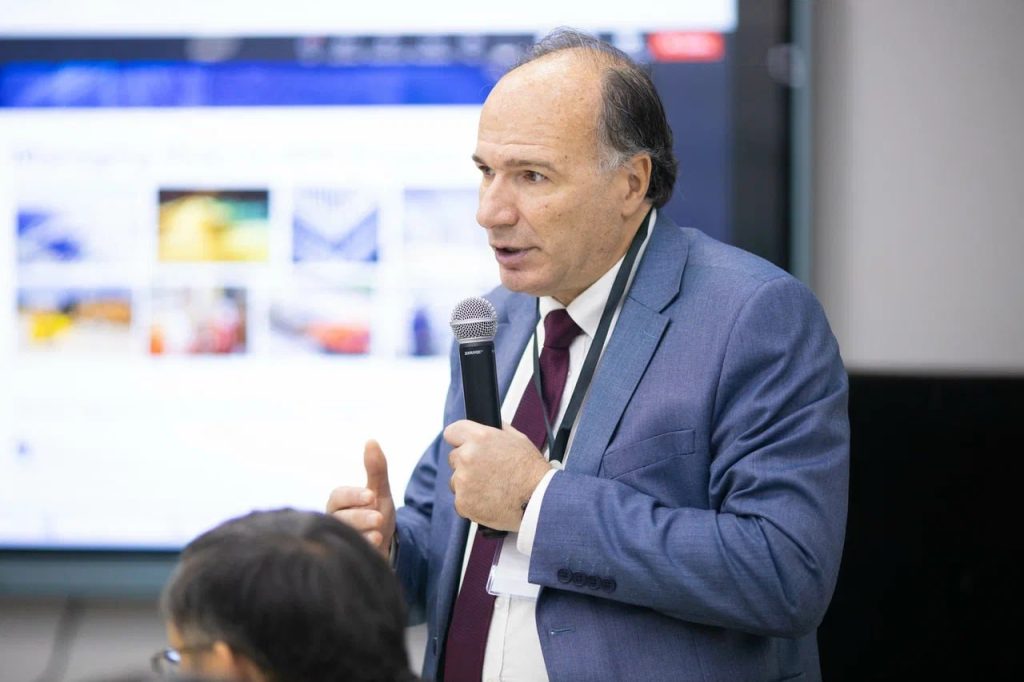
Marcelo Salvatore

Marcelo Salvatore – NAC International expert. Mr. Salvatore has more than 30 years of experience in the nuclear industry, was the Director of an Argentine nuclear power company and also the chief adviser of KACARE in Saudi Arabia, assisting in all possible aspects of the country’s preparations for the construction of a nuclear power plant, and was a key negotiator on proposals with leading global suppliers solutions for the NPP construction (vendors from Russia, China, France), such as the development of road maps and a master plan, the development of critical documents (pre- feasibility study, feasibility study, selection and description of the construction site, development of criteria for evaluating suppliers, etc.).
Argentina and Kazakhstan share many similarities, and nuclear energy is one of the key aspects of their development. In our interview with Marcelo, a nuclear energy expert, we discussed the development of the nuclear industry in Argentina and the potential opportunities for Kazakhstan.
- How has nuclear energy developed in Argentina?
Despite various limitations, Argentina became the first country in Latin America to build and operate a research nuclear reactor. In 1956, it was also one of the world’s earliest countries to launch a nuclear power plant, Atucha-1. Today, Argentina has five research reactors, one under construction, and three nuclear power plants that provide 6% of the country’s energy needs. Additionally, Argentina has developed a small modular reactor, which is a domestic innovation. The country not only meets its own nuclear needs but also shares its expertise on the global nuclear stage.
- What are the similarities between Argentina and Kazakhstan?
Argentina and Kazakhstan share many similarities: vast territories, an abundance of natural resources, and economies reliant on resource extraction. Additionally, there are cultural commonalities, like a shared love for meat. These similarities create a foundation for potential cooperation between the two countries.
- Why has nuclear energy become a priority for Argentina?
Nuclear energy has always been a priority for Argentina because of a strong belief that the local development and application of nuclear technology drive knowledge dissemination and open new economic opportunities. Argentina is developing a workforce with creativity and international competitiveness, fostering a mindset that can also be applied in other sectors. The goal of development remains central, and achieving it requires transforming the country’s economy and society, a process in which the nuclear industry plays a vital role.
- How would you assess the success of the Embalse Nuclear Power Plant modernization?
When we realized that investing in the modernization of the Embalse Nuclear Power Plant would result in competitive electricity tariffs, the question arose: could we accomplish this independently? The government decided to carry out as much of the work as possible domestically. As a result, 70–80% of the Embalse modernization was based on national resources. We were able to reinvest around 80% of the $2 billion into the country’s economy, extending the plant’s operational lifespan while strengthening national industries involved in similar projects worldwide. We believe in developing our own resources—our strength, hard work, integrity, and knowledge. It’s important to be cautious, yet not afraid to aim higher.
- What can Kazakhstan learn from Argentina in terms of nuclear energy?
I wouldn’t say that Kazakhstan should learn from Argentina, but there are things that may be useful in the future. Today, Kazakhstan is a global benchmark, supplying nearly half of the world’s uranium demand in a reliable and responsible way. Given its significant role in the nuclear fuel cycle, Kazakhstan might consider offering services that add value to its resources. This would be a natural step for a country that is already a trusted partner in the global nuclear industry. Argentina and Kazakhstan have much in common, and nuclear energy is a key aspect of their development. In our interview with Marcelo, a nuclear energy expert, we discussed Argentina’s progress in this field and potential opportunities for Kazakhstan.
- How do you view Kazakhstan’s decision to hold a referendum on nuclear energy?
I deeply respect that the country’s leadership is relying on the people to make such an important decision—it speaks to the maturity of society and its inner cohesion. I hope people will vote with reason rather than emotion. I believe that when all the positive arguments for nuclear energy are considered, the only logical conclusion is to support it. Voting based on emotions may obscure the advantages. Life changes, and what seems unnecessary today may be essential tomorrow. Personally, I would never categorically say “no” to any energy option, because my children need warmth, electricity, and water. Why should I deprive them of that?



